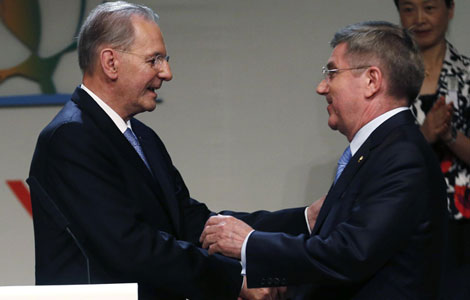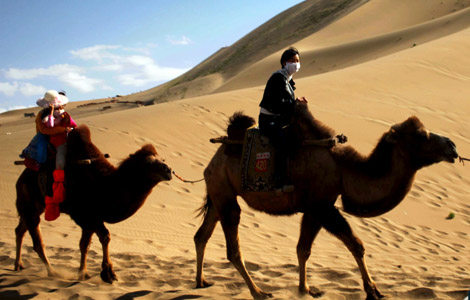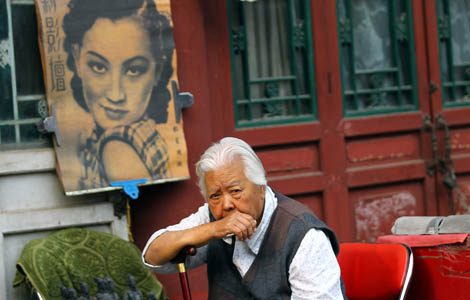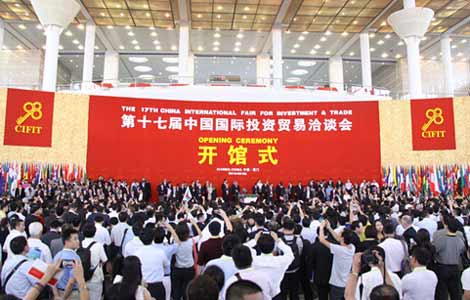For many, Chinese dream means happiness
Updated: 2013-09-06 07:04
By Wang Shanshan in Beijing (China Daily)
|
||||||||
A prosperous economy alone is not always enough, reports Wang Shanshan in Beijing.
Jessie Zhang is a receptionist at a multinational company in Beijing. Every day she takes delivery of around 100 packages, mainly the results of online shopping by colleagues.
"When my co-workers come to collect their goodies, I can see the glitter in their eyes," she said. "They are always very happy."
The Chinese are famous for their love of shopping. During the seven-day Spring Festival in February, Chinese tourists overseas bought goods worth $7.2 billion. Meanwhile, Chinese shoppers were responsible for two-thirds of luxury goods purchases in Europe over the same period.
But the happiness of shopping is fleeting and quickly vanishes after one wears a new outfit to the office and enjoys that "look-at-me moment", and the feel-good factor is replaced by anxiety about the credit card debt, according to psychologists.
As China becomes wealthier, how can its people become happier? The country is undoubtedly the world's second-largest economy, but the happiness of its people is less certain. At the end of 2012, a Gallup poll of 37 countries declared China to be the 10th-happiest country in the world, but in April of the same year a United Nations report put China at 70th.
In his "Chinese Dream" speech in November, President Xi Jinping set the goals of "a prosperous country, a rejuvenated nation, and a happy people". In 2011, Wang Yang, a member of the Political Bureau of the Communist Party of China's Central Committee, vowed to build a "happy Guangdong", when he was Party secretary of the southern province.
Psychological studies
There is a clear limit to the extent to which societies can become happier through the simple expedient of economic growth, a view borne out by a number of psychological and sociological studies of happiness conducted during the past three decades.

Rather, prosperity has to be shared more evenly and equitably, and there has to be greater social trust and greater confidence in the government, less corruption in business and official circles, fewer materialistic values, more freedom to choose what one does with one's life, better education for the whole population, and a number of other factors.
Happier people can promote better economic growth. Happiness at work is one of the main driving forces behind positive outcomes in the workplace, rather than just being a resultant product, as studies have widely proved.
The determination of Chinese people to achieve happiness can be uplifting. There has long been a cultural difference between East and West about the definition of happiness, and traditional thoughts about the emotion were quite heavy-hearted.
The ancient Chinese concept closest to happiness is probably that of fu. When the character was inscribed on oracle bones during the Shang Dynasty (c. 16th-11th century BC), it meant "to fill a wine jug at the altar and provide sustenance for a god", although according to the early 2nd century dictionary Shuowen Jiezi or Explaining and Analyzing Characters, it equated to "worshipping a god".
A far more worldly definition was given in the Shang Shu, or The Book of Documents, a compilation of historical documents from before the Qin Dynasty (221-206 BC). In those days, fu included concepts such as "longevity, prosperity, health, peace, virtue and a comfortable death".
Confucius (551-479 BC) did not talk about fu; in fact, there's not a single mention of the concept in The Book of Conversations, the dialogues between the great sage and his disciples, according to Luo Lu, a professor at the National Taiwan University in Taipei, in a study of folk psychology.
Ritual, or li, was valued much more than mundane happiness. As dictated by tradition, even today the Chinese often value an alternative way of feeling satisfied.
"Human desires can be fulfilled through driving oneself hard and persistently striving, things that are valued highly in Western culture; or desires can be eliminated through even harder suppression and self-cultivation.
"When a simple lifestyle is adopted, the mind is cleared and a state of 'desirelessness' finally breaks the vicious circle of the reproduction of desires, frustration, and misery," wrote Luo.
In mood studies, Chinese participants often report a lower level of happiness than Westerners, according to Dong Yan, an associate professor of psychology at Renmin University of China in Beijing.
"It is rare that they are extremely happy and, if they are, they often worry that something bad may happen afterwards. The ancient notion of choosing the middle path still exerts a strong influence on most people," said Dong.
In cyber life, especially on social networks, the Chinese appear to be much happier. However, "it can often happen that when a smiling face is typed, the person in front of the computer is expressionless; it's only when a laughing face appears, that she may crack a slight smile," she said.
The difference exists because the Chinese think of their feelings more in the context of social relationships and may want to entertain the people they are talking with on the Internet, she explained.
'Easterlin paradox'
Understanding the Chinese mentality is important. In the eyes of researchers, China is a real life, real time experiment in how huge increases in incomes and drastic social change affect people's happiness. Those in the "China experiment" school include leading psychologists and economists, such as Richard Easterlin, an economist at the University of Southern California, and the Nobel Prize laureate Jeffery Sachs, director of the Earth Institute at Columbia University.
The "Easterlin Paradox" was a dominant theory for several decades. In a 1976 study that used data compiled in the US after World War II, Easterlin noted that wealthier individuals are happier than poorer ones at any given time. However, over time, society as a whole does not become happier as it becomes wealthier. Easterlin came to a similar conclusion about China in 2011.
In the last 10 years, opposition to Easterlin has grown, supported by strong evidence, but many economists and psychologists agree that as countries become more developed, policies designed to raise the general level of happiness must target a great deal more than just economic growth.
"Personal psychological status in China now is similar to that in the West after World War II. People are constantly searching for higher incomes, but that quest actually reduces one's level of happiness," said Zhang Jiming, a psychologist at Beijing Normal University.
While it's always nice to have more money, the craving for wealth may damage one's personal happiness, according to an influential 1976 study in which thousands of freshmen students in the US were asked about the importance they attached to personal wealth.
Nineteen years later, at age 37, the former students were re-interviewed. The results indicated that those who cared most about money were less happy with life in general and also with their family life, friendships and jobs.
However, the most important driver of the Easterlin paradox is that individuals compare themselves with those around them. People are happier when they are higher than others on the social or income ladder. Neurologists and psychologists have repeatedly proved that individuals compare themselves with a large number of other people and feel strongly about it.
According to the General Social Survey conducted in the US between 1975 and 2006, regular TV watchers see so many wealthy people on the screen that they underestimate their own incomes and feel worse about their lives.
Comparisons
Verna Liang is a prime example of the scourge of comparison. The office manager at a law firm in Beijing always feels tortured after a day's small talk with her co-workers - lawyers from China and overseas, who all earn far more than she does.
"Every lunchtime, they talk about investing in property in California, buying villas in Shunyi (a popular Beijing suburb), or, at the very least, sending their kids to international schools. Meanwhile, I have to ride the bus home," she said. However, she does wear a Cartier watch.
The tendency to make comparisons comes about because each person is, in a sense, two distinct people. Human beings constantly re-evaluate their lives; periodically one side of a person sits back and reflects, summarizing the events in their lives to date, while the other side experiences everyday life. A combination of the two affects people's moods, stress levels and decision-making abilities, according to some psychological theories.
However, compared with income equality, having an equal opportunity to pursue a better income is more important when it comes to personal happiness. "People hate inequality much more when they think it's unfair," according to the first UN World Happiness Report, published in April 2012.
About 70 percent of US nationals believe that the poor have a chance of escaping poverty, compared with just 40 percent of Europeans. While that belief makes US citizens happier, the data also indicated a greater degree of intergenerational social mobility in Europe, the report said.
To create equal opportunities, one of the first steps a government can take is to provide better education for the entire population, which helps to reduce social tension and, as a result, promotes a greater degree of general happiness, the report noted.
'Lost wallet' test
People have a psychological need for a high level of trust in society, not just between citizens, but also in institutions such as government, said Lin Guirui, a psychology professor at Beijing's Capital Normal University.
The human need for trust was confirmed by the "lost wallet" experiment conducted by the Reader's Digest Europe in 1996, when 10 wallets containing a small amount of cash, plus the contact details of the "owners", were dropped at random in 20 cities in 14 European countries and also in 12 US cities.
The number of wallets returned with the contents intact indicated a strong correlation between national social trust and individual levels of personal satisfaction. The experiment has often been replicated by psychological researchers.
"People need a clean government they can rely on, a community where they can trust their friends, neighbors and strangers. Love and belonging come just after basic physiological and security needs, and people are afraid of feeling lonely," said Lin.
"Loneliness is the feeling that human beings can endure the least. When we talk about how we can become happier, we should look at the question from both sides of the coin."
Contact the writer at wangshanshan@chinadaily.com.cn
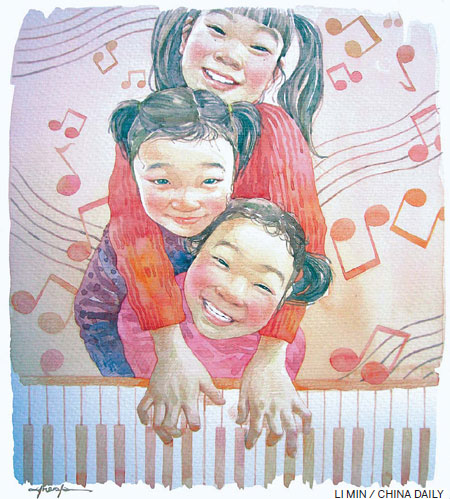
(China Daily USA 09/06/2013 page7)
Most Viewed
Editor's Picks

|

|

|

|

|

|
Today's Top News
Li plots course ahead
US Senate halts vote on use of force in Syria
Kerry to meet Russian counterparts over Syria
Apple's low-end phone price disappointing
Li vows to provide more jobs
IPO to land deals in Hollywood
StanChartered, HSBC 'poised to enter FTZ'
China's data signal stronger growth
US Weekly

|

|
